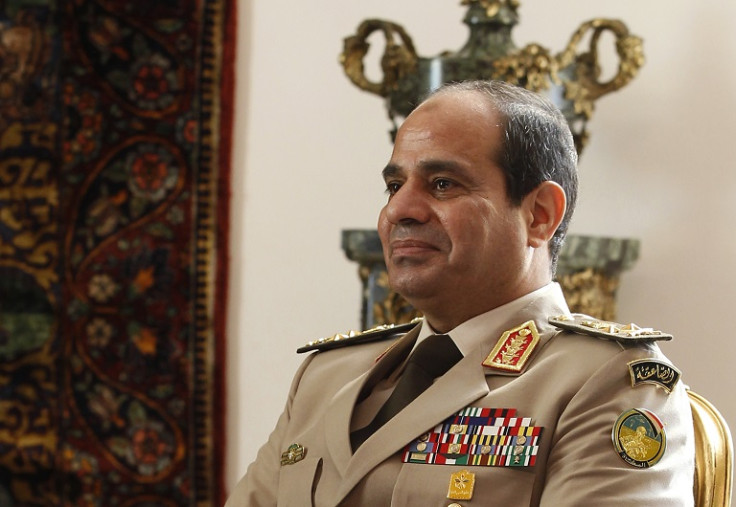Will UAE Aid Empower Egypt's Military?

The news that Egypt's army is taking over development aid from the United Arab Emirates is yet another sign of the military's enhanced position in Egypt today.
The announcement came a matter of hours after army chief Abdel Fattah al-Sisi resigned his position and announced his intention to run for the country's presidency. With no credible opponents on the political horizon, he's expected to win by a landslide.
Assuming that he wins, what kind of Egypt can Sisi expect to govern?
The former army chief only really came to the world's attention last July. He appeared on national television, flanked by leading political reformers and Tamarod activists, to announce that Mohamed Morsi, the country's first democratically elected President, had been removed from office.
There would be an interim civilian government until elections could be held at the soonest opportunity, he said. However, the manner in which the head of the army addressed the country and the world that night, suggested who would be taking the lead.
The US has remained cautious and hasn't restored its military aid programme. However John Kerry said this month that he hoped to resume the programme soon.
On the other hand, Gulf nations Saudi Arabia, Kuwait and the UAE have vigorously backed the interim administration in Cairo, showering the government with money for development projects.
The UAE has offered billions of dollars for a myriad of projects in Egypt, ranging from construction of schools, housing and silos to store wheat.
The Arab world's most populous nation is a massive wheat importer and the Emirati proposal to build 25 silos would significantly lower its exposure to international markets, as well as its long term food bill.
However, a Major General in the Egyptian army has said that UAE officials discussed aid projects directly with the army.
"They said, 'We will support the Egyptian people but through the army – if the people want a hospital, the armed forces will build it,'" Maj. Gen. Taher Abdullah told Reuters.
When a deal worth $4.9bn deal was announced last October, there was no mention of the army's involvement. Plans to build the new silos, which could save Egypt hundreds of millions of dollars, were included in the October package.
However, Sherif Oteifa, an adviser to Egypt's investment minister, told Reuters that army officials had monitored the tender process for the building of the silos.
"We are happy with this, it makes the process go quicker. But the army will not be involved in construction: The bidders are public and private companies."
Moreover, earlier this month the UAE state-linked firm Arabtec announced it had agreed a deal directly with the Egyptian army worth $40bn to construct a million new homes.
The parallels with the Hosni Mubarak era are already striking. The former air force chief ruled Egypt for decades, during which the army accumulated massive business interests, including real estate, manufacturing and the provision of services.
The sizable grey economy in Egypt makes it impossible to know how much economic power the armed forced wield but a recent report in Die Welt said it could amount to almost half of Egypt's GDP.
The man who allowed this system to thrive was toppled at the height of the Arab Spring in 2011. Thousands of Egyptians celebrated the end of Mubarak's military industrial complex.
Yet the country's armed forces, with significant backing from Gulf leaders, are back on the front foot again.
© Copyright IBTimes 2024. All rights reserved.






